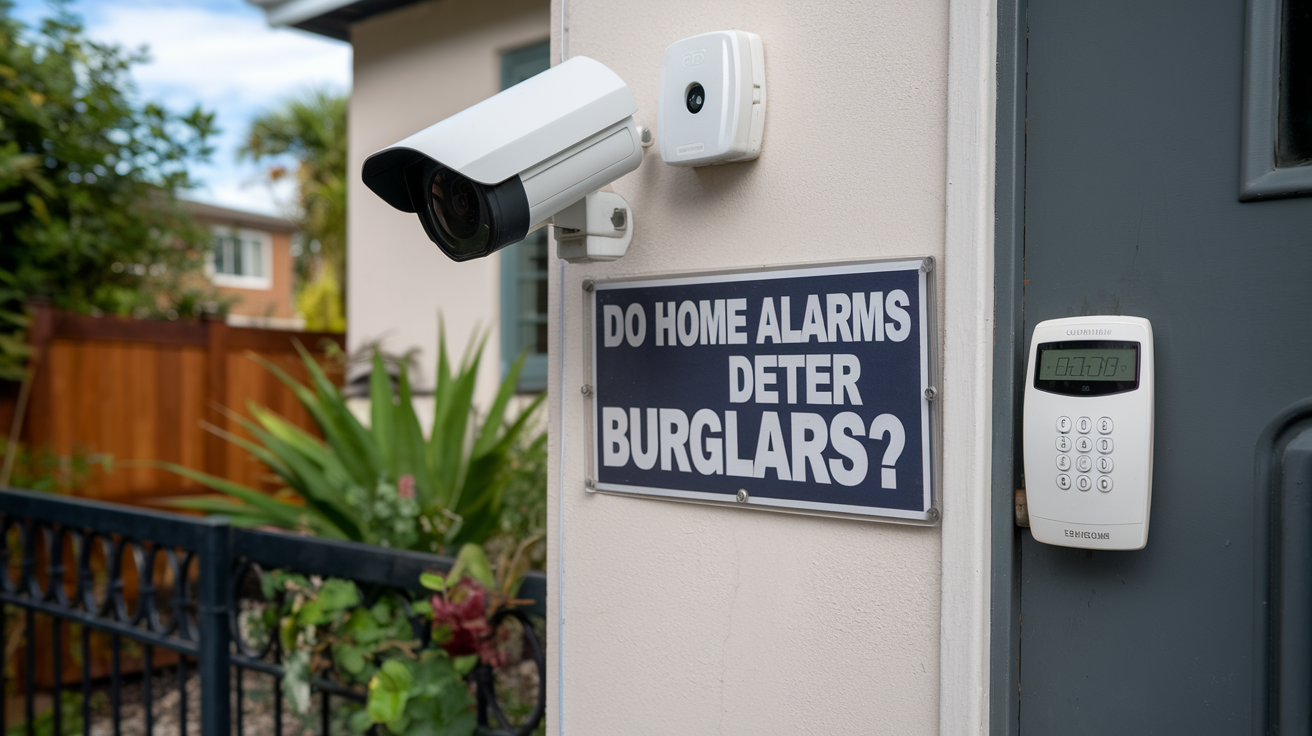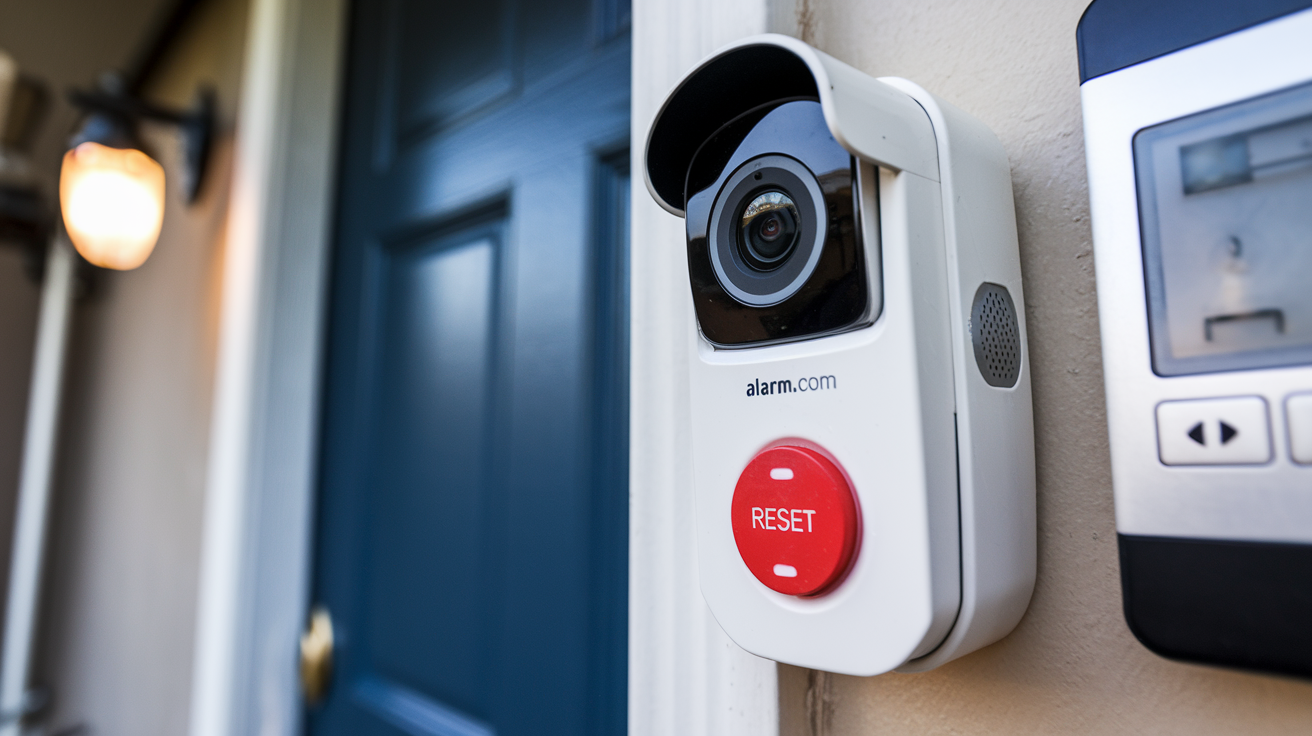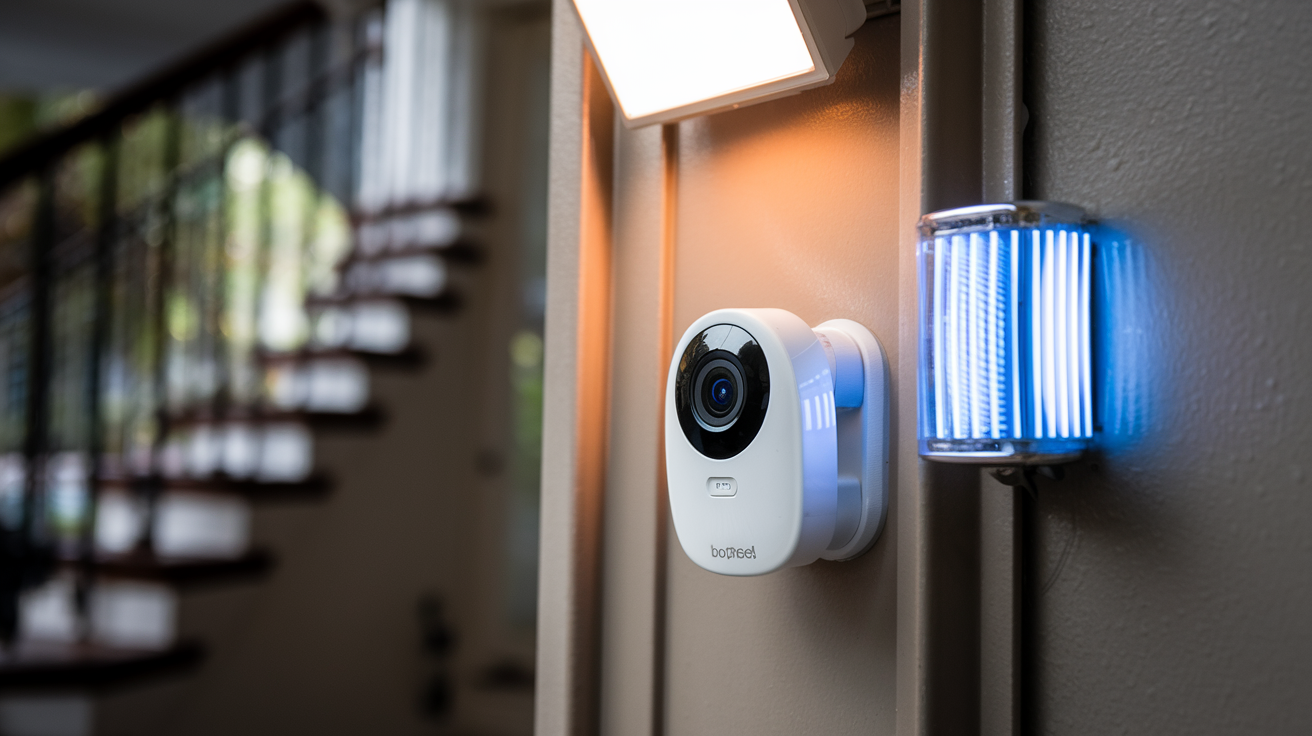Choosing whether to use a home alarm system is a crucial factor that most homeowners to protect their home and property. As burglary is an important issue, the use of alarms should appear to be quite logical. But do they keep burglars out or stop them from getting into your house? There is some evidence that alarms can thwart burglaries but alarms are not the ‘silver bullet’ against burglary.
How Home Alarms Protect Property from Burglars?
The first way through which home alarms are effective at discouraging burglars is by fear of being caught. A loud sound produced by an activated alarm is to discourage the intruder and at the same time alert the neighboring compounds that a break-in may be taking place. This in turn raises the probability of the burglar being caught or at least seen by people in the house. The majority of burglars want to enter and exit a house in the shortest time possible and with minimal noise. Making this much more difficult is the common practice of setting off a loud alarm when it's time to wake up.
Besides the audible warning, an effective Home Security System also contacts the local police, security firms, or the homeowner when activated. The fact that authorities might already be on their way can help make a burglar abandon the crime scene at the earliest opportunity. Security systems that are put in place to monitor the outside of the home can also detect the criminals and enable the police to arrest the burglars after the act if the alarm is not enough to discourage them from pursuing the crime in the first instance.
Criminals usually select homes that they think are weak or have a weaker defense system than other homes.
Studies show that recidivists are likely to spend time casing neighborhoods to identify houses most likely to be easy to break into. The presence of an alarm system, warning signage, and even outdoor cameras may deter burglars from planning how to invade a specific home.
Lacking specific signals that a strong security system is in place, thieves may consider a house as an easier and more attractive target. Furthermore, houses that are well taken care of have lower incidences of burglaries than houses that are poorly maintained. Such negligence in maintaining the compound makes burglars think that the owners are also lenient when it comes to protecting the house.
Lapses, Deficiencies, and Flaws of Alarms in Preventing Burglaries
Though home alarm systems should reduce a certain percentage of break-ins, they cannot stop all burglaries. At times, their noise and visibility make burglars shift to other areas or houses instead of discouraging them from the whole region.
Advanced burglars have also been known to neutralize alarm systems through the removal of phone lines or power supplies. Criminals might scout a community to get familiar with the work and travel schedules of homeowners to steal even with alarm systems.
The increase in false alarms also affects the efficiency of the alarm systems that are in place. Due to frequent disarm and reactivation by the homeowners, police consider some activated alarms as probable false alarms. Despite the possibility of immediate notification of an alarm system activation, the police response time to alarms is 16 minutes and above, enough time for persistent intruders to gain entry, steal valuable items, and get away.
Solutions that may help to increase the effectiveness of home alarm systems
While home alarm systems cannot guarantee prevention of break-ins, homeowners can take measures to maximize their burglary deterrence capabilities:
- Select an alarm monitoring firm that dials the police upon the first activation of the alarm and then calls the homeowner to verify whether it is a false alarm. This ensures that police officers attend to incidents in the shortest time possible.
- Ensure the alarm system is backed up in case a burglar decides to switch off power in a bid to neutralize the home alarm system. Phone line cuts though can be avoided if the place has a cell network or wireless connectivity.
- Install warning signs to be placed around the compound but ensure one does not specify which company is offering the alarm system monitoring service. The visibility of the recorded area discourages intrusions without presenting complex criminals with information that may help them neutralize the recording process.
- Ensure doors and windows are fitted with tight and stronger locks that would make it difficult for the burglar to gain entrance even when they try to break in despite the alarm system. It is important to note that on the high-security deadbolt locks, there is a considerable increase in security as opposed to ordinary key lock systems.
- Regularly ensure that the compound has a neat lawn and trimmed plants to avoid allowing the intruders to hide themselves waiting for an appropriate time to gain entry into the house. motion-sensitive security floodlights are also helpful in lighting up intruders at night.
Some break-ins are probably prevented by home alarm systems, but other security measures like smart locks, exterior cameras, bright lighting, strong doors and windows, and secure doors and windows should be added to alarms to guarantee home security.
Opportunistic burglars are most easily deterred by alarms.
In conclusion, existing literature suggests that home alarm systems do prevent some burglaries to a certain extent based on the fear of getting caught or encountering the alarm. But, according to professional thieves, they have developed different tactics of avoiding alarms through surveillance, interference with phone or power supply, and mastering how to bypass or neutralize the alarm system. Alarms mainly appear to deter simple burglars who lack advanced planning skills.
Protect your home today with ADT’s top-rated security solutions!
Call now at +1 877-470-7879 to get a free consultation and find out how you can secure your home with the best in the business. Don’t wait—ensure your peace of mind with ADT!







